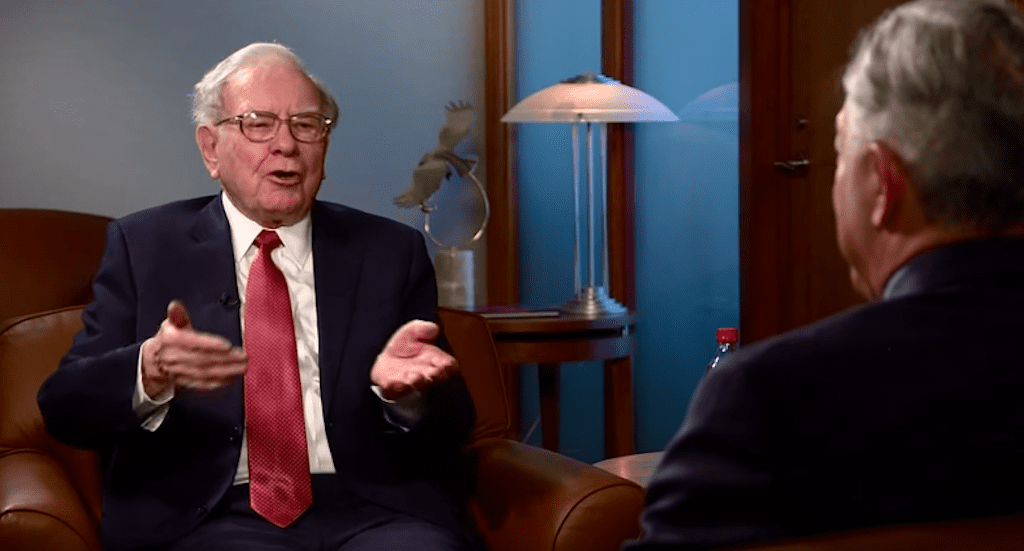 As U.S. companies are on track for $1 trillion in buybacks, according to Goldman Sachs, there have been deep, dark concerns that these are financially driven market manipulations that are taking money out of worker’s pockets.
As U.S. companies are on track for $1 trillion in buybacks, according to Goldman Sachs, there have been deep, dark concerns that these are financially driven market manipulations that are taking money out of worker’s pockets.
Politicians may not agree on the country’s border or whether to fund the Federal budget, but they concur on why America is in such a sad state of despair. It turns out companies buying back their shares is the real problem.
Who knew?
Mark Rubio (R-FL) recently joined Chuck Schumer (D-NY) and Bernie Sanders (D-VT) to claim buybacks are enriching the wealthy and widening income inequality, while at the same time, stifling innovation and squandering money that could go to workers.
Politicians want the public to believe that absent the stock buyback, the cash would be gifted to workers in higher salaries and benefits. The question before us is whether this is just another false narrative promulgated by desperate politicians trying to compete with 29-year-old socialist Alexandria Ocasio-Cortez, or is there something to their argument?
Let’s begin with a fact well-known to most managers, that compensation pools are partly based on hiring needs, performance levels, and peer groups, so merely shifting cash from buybacks to salaries would be like buying your 16-year-old a second car because she’s a good girl. But if you found a way to store the cash and earn a decent return so that when the time comes, you could afford a better car, you might be tempted.
The second is the fact that buybacks are made out of free cash flow, which Investopedia defines as “money that’s left over after a company has paid all its bills and its taxes, has accounted for depreciation, and has invested in the business.” It is money the owner gets to keep—after investing in workers and innovation—in the form of a dividend or a buyback.
Maybe the better question is whether we should let people who don’t know how to balance the Federal budget have sway over corporate balance sheets? To get a straight answer, I turned to the reigning expert, Warren Buffett, who thinks buybacks make sense to capital allocators and businesses at the right time.
Buffett explains in his annual shareholder letter his modus operandi for buybacks: “Berkshire will from time to time be repurchasing its own stock. Assuming that we buy at a discount to Berkshire’s intrinsic value – which certainly will be our intention – repurchases will benefit both those shareholders leaving the company and those who stay.” He believes buybacks are a better deal for the investor than a dividend because management can choose when to buy back shares, something a dividend does not allow. For instance, when GE cut its dividend to a penny because it could no longer afford it, it became the largest ever dividend cut in history and brought the stock down by 60%.
To Buffett, the secret to smart buybacks is good timing. As recently as the 2004 Berkshire Hathaway annual meeting, long before the company’s first buyback announced in 2011, Buffett said: “When a stock can be bought below a business’s value it is probably the best use of cash.” That is the key, set a value threshold and stick to it.
Warren Buffett thinks buybacks can give management the discretion to do something with surplus cash that has a positive short-term effect on the shareholder and a long-term effect on the business and employees.
When Berkshire Hathaway found itself sitting on over $100 billion in cash around July 2018 and hadn’t done a significant deal in over three years, it announced a change in its buyback policies. One reason is the cost of acquisitions (include a buyer’s premium) is so high these days, your stock could be the best bargain out there. The analogy would be it’s more prudent to put an addition onto your house than buying a larger one down the block.
As for stifling innovation, which the politicians like to complain about, let’s keep in mind one of the largest ever buybacks was announced by Apple, Buffett’s single largest investment and the world’s most prolific innovation machine. The company announced another $100 billion buyback program on top of the $210 billion that was previously announced.
The reason Buffett likes the Apple share repurchase is market volatility, which can make a stock go up or down for reasons which have nothing to do with his favorite metric, intrinsic value, can be to the advantage of the buyback shareholder: “If it (share price) goes down, Apple is going to buy a lot of stock back,” Buffett told CNBC. “If it goes down 10% it means they get to buy 10% more shares and my interest will go up 10% more.”
Buffett was asked at the 2018 Berkshire annual meeting about why didn’t Apple buy companies with its extra cash? Buffett responded that finding a meaningful deal out there for a company of Apple’s size is a long shot, particularly one that will be accretive to earnings (something in the $100-200 billion range) and not just a management distraction (which all acquisitions are).
Business is an engine with cogs that must mesh perfectly for workers to be paid, the business to make money, and the shareholders to get their just reward for risk-taking. And they have to happen in that order.
Workers get more when the business makes smart decisions about people, capital, and investments. The Rubio and Schumer-Sanders plans would gum up the delicate movement and do nothing for the workers the politicians pretend to care so much about. According to Bennett Stewart, senior advisor to ISS, the corporate governance and shareholder advisory firm: “The proposed rules would block the system by putting tourniquets all around.”

Chief Executive Group exists to improve the performance of U.S. CEOs, senior executives and public-company directors, helping you grow your companies, build your communities and strengthen society. Learn more at chiefexecutivegroup.com.
0

1:00 - 5:00 pm
Over 70% of Executives Surveyed Agree: Many Strategic Planning Efforts Lack Systematic Approach Tips for Enhancing Your Strategic Planning Process
Executives expressed frustration with their current strategic planning process. Issues include:
Steve Rutan and Denise Harrison have put together an afternoon workshop that will provide the tools you need to address these concerns. They have worked with hundreds of executives to develop a systematic approach that will enable your team to make better decisions during strategic planning. Steve and Denise will walk you through exercises for prioritizing your lists and steps that will reset and reinvigorate your process. This will be a hands-on workshop that will enable you to think about your business as you use the tools that are being presented. If you are ready for a Strategic Planning tune-up, select this workshop in your registration form. The additional fee of $695 will be added to your total.

2:00 - 5:00 pm
Female leaders face the same issues all leaders do, but they often face additional challenges too. In this peer session, we will facilitate a discussion of best practices and how to overcome common barriers to help women leaders be more effective within and outside their organizations.
Limited space available.

10:30 - 5:00 pm
General’s Retreat at Hermitage Golf Course
Sponsored by UBS
General’s Retreat, built in 1986 with architect Gary Roger Baird, has been voted the “Best Golf Course in Nashville” and is a “must play” when visiting the Nashville, Tennessee area. With the beautiful setting along the Cumberland River, golfers of all capabilities will thoroughly enjoy the golf, scenery and hospitality.
The golf outing fee includes transportation to and from the hotel, greens/cart fees, use of practice facilities, and boxed lunch. The bus will leave the hotel at 10:30 am for a noon shotgun start and return to the hotel after the cocktail reception following the completion of the round.